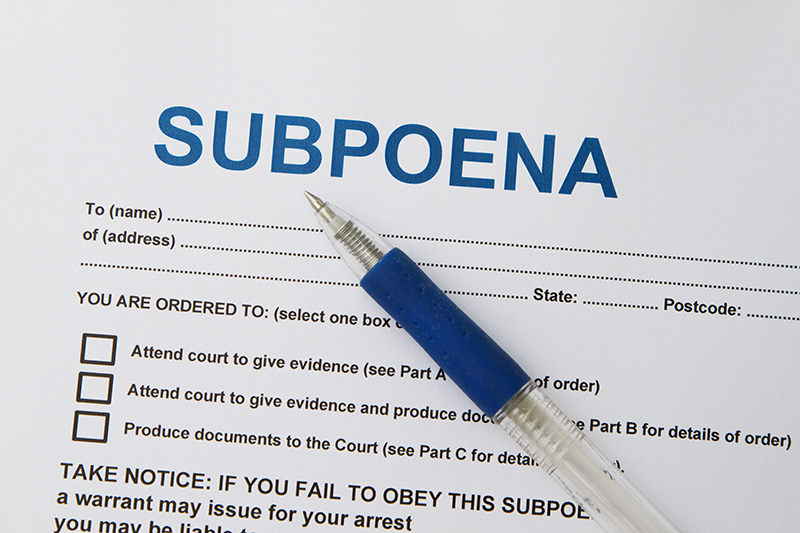The testimony of a witness or collecting relevant medical records is important in most medical-legal cases. A subpoena is a court document that orders the witness to appear and answer questions related to the case. It may be used to compel witnesses to testify and provide the required evidence. Not only courts, attorneys also use subpoenas to gain access to information critical to a legal case or to compel an individual to testify. Attorneys mainly use subpoena to obtain a patient’s medical records for use in different types of civil lawsuits including personal injury, medical malpractice, workers’ compensation or any other. Medical record organization is essential for attorneys to prepare and review records for the case.
Subpoenas may be issued for both civil and criminal cases. For patients’ medical records to be used as evidence in court proceedings, lawyers may send subpoenas using the mandatory, fillable forms without the clerk’s signature or court seal. The subpoena could be sent for hard copy records, electronic/digital records, or both.
Optimize your medical record review with expert medical record organization solutions!
Schedule a consultation now at (800)-670-2809!
Types of subpoena
Three common types of subpoena are – Subpoena duces tecum, deposition subpoena, and witness subpoena.
Subpoena duces tecum
Subpoena for the production of documents or subpoena duces tecum requires someone to submit some relevant documents, records or any types of evidence related to the ongoing case to the court (no testimony is needed). “Duces tecum” is a Latin phrase, meaning “you shall bring with you”. The subpoena includes clear instructions on how to comply with the summons, and the name of the party to whom the documents or things should be provided. The person will be asked either to hand-deliver the documents at a particular date and time or mail, scan or email them to appropriate recipients. This subpoena also lists a deadline for the delivery or records.
Lawyers can use their subpoena powers, when they are approaching trial and in the course of a trial. They can issue a subpoena duces tecum to support an expert witness’ testimony and mainly to collect medical records, which is a crucial evidence to win the lawsuit. A subpoena can be sent for not only medical records and billing records, but also for inventories, client/patient files, bank statements, corporate or account statements, phone records, and general business records.
Subpoena Ad Testificandum
Also called Witness Subpoena, this common form of subpoena requires the witness or the recipient to appear in court, usually in a trial. The court may also instruct the witness to submit certain relevant documents when they testify. Prosecution and defense attorneys mainly use witness subpoenas to gather evidence that builds the case. Witness subpoenas are a component of discovery, as the witness may have information regarding the defendant committing the crime.
Deposition Subpoena
This type of subpoena requires the witness to appear at a deposition to testify and produce documents, or for both. Deposition or discovery subpoena involves attorneys for the parties asking the witness questions under oath, and the answers will be recorded by a court reporter. Both the prosecution and defense can ask the witness questions. Most deposition subpoenas are issued for civil proceedings and rarely for criminal proceedings. Judges do not appear in depositions. The witness testimony is recorded or videotaped as evidence. The person has to respond to answers under oath. Documents to submit must be accessible to the court or judge.
Pre-Trial Deposition – Key Mistakes Physicians Must Avoid
7 Best Practices For Remote Deposition
Failure to respond to a subpoena is punishable and could result in legal consequences. Punishment may even include imprisonment. Medical records that serve as critical evidence for diverse litigations are obtained for medical record review that provides a clear overview of all the details relevant to the case.
Disclaimer: The information provided in this blog is not professional legal advice and is for informational purposes only. For a professional opinion in this regard, consult an experienced attorney.
Unlock the power of well-organized medical records for your legal practice.
Try our services free! Talk to us at (800)-670-2809!




